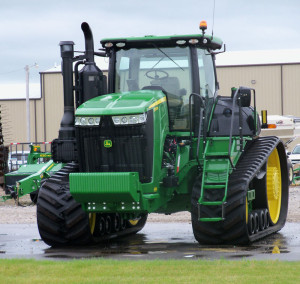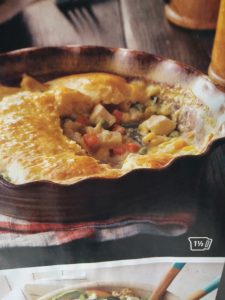(Radio Iowa) – Iowa’s largest manufacturing employer is partnering with Iowa State University to create a demonstration farm near the Ames campus to field-test agricultural equipment and various farming practices in real-world conditions. Andy Greenlee, a senior staff engineer at John Deere, says the 80-acre tract is divided into eight fields where they’ll test sustainable solutions for large grain production systems.
“We’ll be looking at four different practices that will be on those eight fields in corn and soybeans,” Greenlee says. “Half the farm will be in a corn-soybean rotation and the other half will be in a corn-corn-soy rotation and it’s looking at practices that are common to farmers in that location.” Greenlee says the farm is designed to give Deere the same uncertainties and challenges as its customers, so they can test and identify which methods work — and which don’t. Over a five-year production cycle, he says four different crop production systems will be implemented.
“We’ll do a conventional tillage situation or passes, so we usually have a two-pass system of tillage,” Greenlee says. “We have a reduced tilled where we’re looking at keeping some more of that residue on the soil surface. We go into a strip till practice where tilling only a slight band, a 10-inch band, placing those fertilizers into that tillage pass and then planting right on top of it. And then the last practice that we’re demonstrating is no-till and cover crops, so growing cover crops before that cash crop and then planting into that.” The farm is being run by a combination of Deere employees and I-S-U faculty and staff who are using an array of John Deere Green equipment. 
“We are using our exact emerged planter technology where we’re placing that seed at the right place within the furrow,” Greenlee says. “We also have our auto track guidance technologies for our equipment to save on fuel savings, and also a section control so that we can turn the inputs that are the seeds, the fertilizers that are being applied, and we can put those in the right place and at the right rates.” The data collected will measure multiple factors, Greenlee says, including crop productivity, the cost of production, soil health, water quality, carbon intensity and biodiversity.
Through the partnership, Deere is supplying the equipment and technology while I-S-U is covering the input costs, things like seed and fertilizer, while the university gets to keep the revenue from taking the crops they harvest to market.








